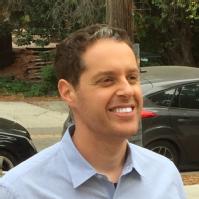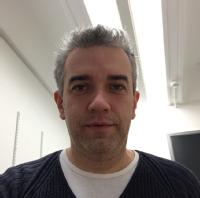Computer Science News
Warwick lead the first verifiable e-voting trial in the UK
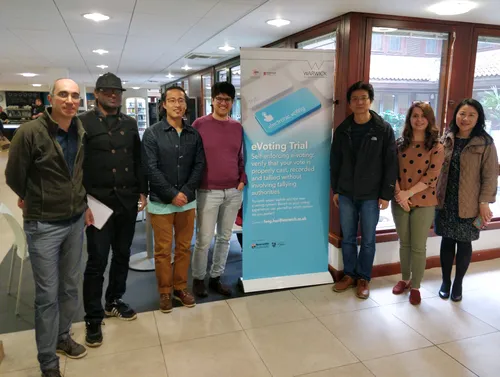
Researchers from the Department of Computer Science, University of Warwick, joined by colleagues from Newcastle University and the University of York, led the first successful trial of an end-to-end verifiable e-voting system for polling station voting in Gateshead, Newcastle during the local elections on 2 May 2019. This trial was supported by the electoral service officials at the Gateshead council and was approved by the University of Warwick’s research ethics committee.
This is the first trial of a fully electronic voting system with end-to-end (E2E) verifiability for polling station voting in the UK. Being E2E verifiable, the system allows voters to independently verify if their votes are cast-as-intended, recorded-as-cast and tallied-as-recorded while preserving their privacy. By contrast, with paper ballots, voters must trust other people to record and tally their votes correctly, but they cannot verify this by themselves. The trialled e-voting system is the research outcome of an ERC starting grant, led by Professor Feng Hao from the Department of Computer Science. The prototype was developed under the support by Innovate UK and the trial was sponsored by the Royal Society.
On the election day, voters went to the Gateshead civic centre polling station to vote on paper ballots as usual. Upon exit from the polling station, they were invited to try a touch-screen based e-voting system for a mock election involving a set of dummy candidates. Voters were then provided with an anonymous survey form to indicate based on their voting experience, which of the two voting systems did they prefer. Nearly half of the voters at the Gateshead civic center polling station participated in this trial and provided many useful feedbacks. From the survey results, voters generally found the trialed e-voting system easy to use, and preferred it to paper ballots.
From Gateshead Council News, this is "a new system that could completely revolutionise the elections system". The Gateshead trial is also covered in the BBC News, University Press Releases, Webroots democracy, Government Business, Gizmodo, and ChronicalLive. A video demonstration of the trialled e-voting system is available on YouTube.
Best Paper Award at STOC 2019
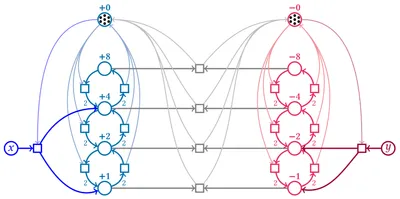 The contribution The Reachability Problem for Petri Nets is Not Elementary by Wojciech Czerwinski, Slawomir Lasota, Ranko Lazic, Jerome Leroux and Filip Mazowiecki has won a Best Paper Award at the 51st Annual ACM Symposium on the Theory of Computing, to be held on June 23-26, 2019 in Phoenix, AZ.
The contribution The Reachability Problem for Petri Nets is Not Elementary by Wojciech Czerwinski, Slawomir Lasota, Ranko Lazic, Jerome Leroux and Filip Mazowiecki has won a Best Paper Award at the 51st Annual ACM Symposium on the Theory of Computing, to be held on June 23-26, 2019 in Phoenix, AZ.
This work, which was supported by a Leverhulme Research Fellowship, shows that the central verification problem for Petri nets is much harder than has been known since the landmark result of Richard Lipton in 1976. Petri nets, also known as vector addition systems, are a long established model of concurrency with extensive applications in modelling and analysis of hardware, software and database systems, as well as chemical, biological and business processes.
Promotions for two academic staff
 We are delighted to report that Dr Sara Kalvala and Dr Ligang He have been promoted to Reader, effective from 1 June 2019. Quoting from their recommendations,
We are delighted to report that Dr Sara Kalvala and Dr Ligang He have been promoted to Reader, effective from 1 June 2019. Quoting from their recommendations,
Dr Sara Kalvala is one of the most experienced academics in Computer Science, with extensive contributions to teaching (at all levels), research (in core computer science, interdisciplinary and recently in computer science education) and administration (in departmental, institutional and national settings). Sara has also been leading a range of outreach activities, as well as being one of the most collegiate members of the department.
and
Dr Ligang He has in recent years grown not only into one of the leaders of his wider research area in the department (high-performance systems), but also into a highly competent teaching innovator, with exemplary impact, outreach and engagement at the international level, as well as a reliable, industrious and forwards pushing colleague in the department. Among his other achievements is that Ligang has been successfully supervising a growing group of PhD students; he has graduated 5, and is currently supervising 7 PhDs.
it remains to say many congratulations!
Dr. Tom Gur joins the department as a new Assistant Professor
The Department is welcoming our new Assistant Professor Dr. Tom Gur, who will be associated with the Division of Theory and Foundations (FoCS) and the Centre for Discrete Mathematics and its Applications (DIMAP).
Before joining Warwick, Tom held a postdoctoral researcher position in the Theory Group at UC Berkeley (2017–2019). He obtained his PhD in Computer Science and Mathematics from the Weizmann Institute of Science, under the guidance of Oded Goldreich, in 2017.
Dr. Charilaos Efthymiou joins the department as a new Assistant Professor
The Department is welcoming our new Assistant Professor Dr. Charilaos Efthymiou, who will be associated with the Division of Theory and Foundations (FoCS) and the Centre for Discrete Mathematics and its Applications (DIMAP).
Before joining us, Charilaos held research positions in various universities including Goethe University of Frankfurt, Germany, as a DFG Fellow, College of Computing at Georgia Institute of Technology, USA, and School of Informatics a the University of Edinburgh, UK. This is not his first time at the University of Warwick, he has been a post-doc researcher at DIMAP (2010-2012). Charilaos completed his PhD at the University of Patras, Greece, in 2009.
His research is in the intersection of theory of algorithms, discrete mathematics and statistical physics. Specifically, he studies how powerful notions from statistical physics, e.g., phase transitions, affect the performance of algorithms for various problems in computer science and mathematics.
More information about Charilaos can be found on his personal web-page https://sites.google.com/site/charisefthymiou/.
Dr Claire Rocks is a new WIHEA Fellow
Many congratulations to Dr Claire Rocks on her election to a Fellowship of the Warwick International Higher Education Academy.
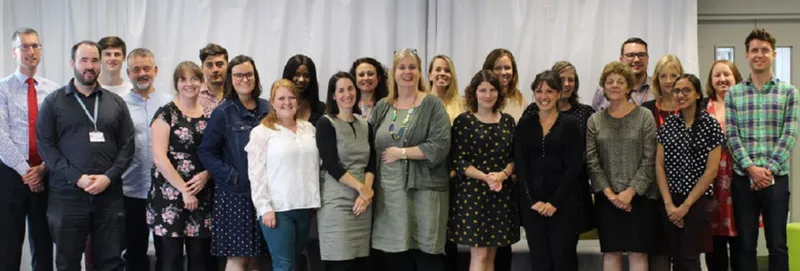
A WIHEA Fellowship recognises and rewards outstanding achievements in learning and teaching and is an exceptional opportunity to engage with colleagues across the university, improve the student experience and make a genuine difference to Warwick through research, debate and policy formation.
Promotions for two academic staff
 We are delighted to report that Dr Theo Damoulas and Dr Gihan Mudalige have successfully completed their probations early, and become Associate Professors at the start of this month. Quoting from their probationary review reports,
We are delighted to report that Dr Theo Damoulas and Dr Gihan Mudalige have successfully completed their probations early, and become Associate Professors at the start of this month. Quoting from their probationary review reports,
Gihan has had a number of successes with attracting substantial research funding, most recently for two projects with AWE PLC, and one with Rolls Royce PLC. A further major success is Gihan’s Royal Society Industrial Fellowship, which will run over the next 4 academic years at 50% of Gihan’s time. ... Dr Gihan Mudalige is an outstanding and valuable member of the department’s academic staff, whose many likely future contributions to both research and teaching we are looking forward to.
and
Dr Theo Damoulas is a valuable asset to both Computer Science and Statistics departments in all of the research, teaching, administration and collegiality areas. Theo is already a next-generation research leader at the national and international levels, in particular enhancing the university's partnerships with the Alan Turing Institute, CUSP London, King's College London, and New York University.
it remains to say many congratulations!

